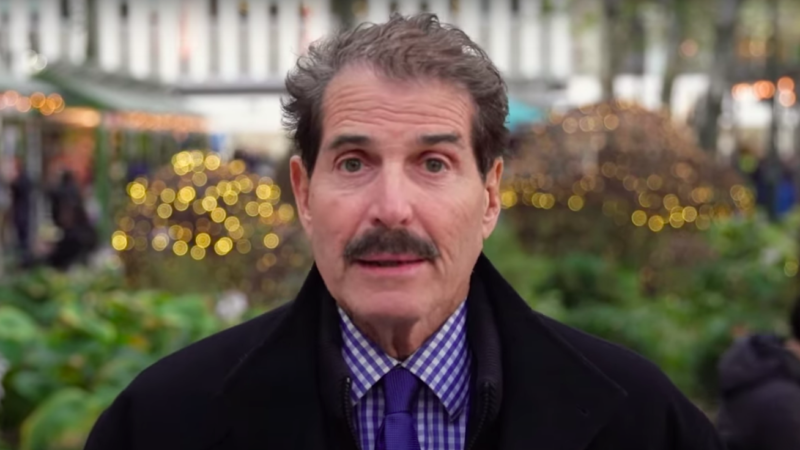New York City's Bryant Park Was a Hot Mess. Then It Was Privatized.
When government does things, most everything costs more and is lower quality.

People want "public" rather than "private."
Public is…free, right? Wide open. Sharing. Available to everyone. All good things.
"Private" is…selfish, closed, for the rich.
Clearly, public must be better.
But then why do the words "public toilet" make me cringe? I think: dirty, smelly, ugly, maybe dangerous.
Lots of people think that.
I know because I watch tourists stare at the long line of people waiting to use a public toilet near my office in Manhattan.
"Yuck," they say, with a disgusted look. "Why would someone line up for that?"
"A lot of people say that," laughed a bathroom attendant.
Wait, a bathroom attendant?
Yes. This is a different sort of bathroom, in a different kind of park.
There is ice skating, pingpong, juggling lessons, yoga lessons…all for free.
Two attendants clean the bathrooms 30 times a day, and the bathrooms are furnished with flowers and paintings. Speakers play classical music.
This is a huge difference from 37 years ago, when Bryant Park was filled with vagrants and trash. It was then that urban redeveloper Dan Biederman managed to persuade city politicians to let him try to run the park.
He got money from local businesses and tried innovative things, like playing music in the bathrooms.
"It's just another element, along with flowers, recessed lighting, and artwork, that makes people think they're going to be safe," says Biederman in my new video.
Safety is important because crime is up.
But there's little crime in Bryant Park because crime thrives in dark corners, and this park is filled with people.
Plus little businesses like Joe Coffee Co. and Le Pain Quotidien. They pay for the park. Some people object to that.
"A park isn't supposed to be about business!" they say.
Biederman responds, "In the current state of things you can't have 'passive spaces.' Too many people are circulating who are violent or emotionally disturbed."
To discourage such people, he fills his park businesses and activities—like the juggling lessons. When lots of people are in a park, he says, vagrancy is less of a problem.
Still, he sometimes must deal with troubled people. The worst, he says, are people who take the drug K2 and suddenly get so hot that they take their clothes off.
Our guards "guide them out of the park," says Biederman.
It all works. Twelve million people visit Bryant Park every year, and none of it costs taxpayers a penny. Actually, the city makes money, says Biederman, because "the increased real estate taxes paid by the surrounding buildings—it's $33 million a year."
"Why can't governments do this?" I ask.
"They do, at times," he responds. He points to Central Park.
But Central Park was rescued by a private charity, one I happen to work with. Before we started managing the park, it, too, was run-down, dangerous, covered in trash and graffiti.
That often happens to public property. Politicians rarely spend much time on boring tasks like maintenance.
"A typical thing for parks departments to do is take old oil drums…and use them as trash cans," says Biederman. "Oil drums are really ugly. What does that say to the public?"
He installs elegant trash cans. Then he has them emptied often. "That signifies that someone cares," he explains.
Biederman runs "private" parks in other places, like Salesforce Park in San Francisco and Fair Park in Dallas.
All save taxpayers money, while government-run parks cost taxpayers money.
When government does things, most everything costs more and is lower quality.
One of my first Stossel TV videos was a report on an NYC park that spent $2 million on its bathroom. The Parks Commissioner claimed $2 million was "a good deal."
"But you can buy whole houses in that neighborhood for less than what you spent on this bathroom," I said.
"These are very, very durable materials," he replied.
Give me a break. Bryant Park's nicer bathroom uses similar durable materials. But it cost much, much less.
Whenever possible, let the private sector do it.
COPYRIGHT 2021 BY JFS PRODUCTIONS INC.



Show Comments (47)